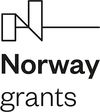Structural and functional studies of human PNPase in mitochondrial RNA metabolism
Principal Investigator: Katarzyna Bandyra
Human
polynucleotide phosphorylase (hPNPase) is a highly conserved
exoribonuclease residing mostly in the mitochondrial intermembrane
space, where its function is poorly understood. In bacteria, where the
enzyme is best understood, PNPase can be re-programmed by the RNA
chaperone Hfq and small regulatory RNA (sRNA) to switch from degradative
to chaperoning roles in RNA-mediated gene regulation. As the human and
bacterial enzymes are homologues, it is possible that hPNPase could have
a dual mode of action as well, and could participate in diverse
RNA-mediated regulatory processes once trapped in a non-degradative
assembly. Our research will address what functions are played by hPNPase
present in the intermembrane space of the human mitochondria. We will
characterise the full-length enzyme and its capacity to bind substrates
in the degradative and non-degradative modes, as well as identify
potential hPNPase ternary complexes. In order to achieve these
objectives, we will elucidate the structure-function relationship of
hPNPase by cryo-EM.
The primary objectives of the POLS projects are to identify the protein and RNA partners of hPNPase within human mitochondria. This investigation aims to deepen our understanding of the enzyme's roles in mitochondrial RNA metabolism and its broader functional significance.
Funding source:
National Science Centre, Poland & EEA and Norway Grants - POLS
Structural and functional studies of human PNPase in mitochondrial RNA metabolism
- PLN 878 220 (EUR 200 000)
- Sep 2021 - Aug 2023
- #2020/37/K/NZ1/02312
- Project PI: Katarzyna Bandyra
This research has received funding from the Norwegian Financial Mechanism 2014-2021 2020/37/K/NZ1/02312
EEA | Norway Grants| NCN
Link to the project page in Polish: PL
Events and news from the project are published in the NEWS section:
2025-07-01 Publication in the FEBS Journal showing that FASTK can prevent PNPase from degradation of RNA.
Human FASTK preferentially binds single-stranded and G-rich RNA. Dawidziak DM, Dzadz DA, Kuska MI, Kanavalli M, Klimecka MM, Merski M, Bandyra KJ, Górna MW. FEBS Journal (2025), DOI: 10.1111/febs.70155
2024-07-15 New preprint showing hPNPase interplay with FASTK protein
2024-04-30 The POLS project has concluded. Unfortunately, due to multiple equipment failures and unforeseen experimental challenges, the project could not complete the experiments required to fully uncover the role and interactome of hPNPase in human cells. Despite these setbacks, Kasia has made progress by exploring hPNPase's role in FASTK protein-dependent mitochondrial transcript metabolism. She remains determined to unravel the broader functions of this enzyme in mitochondrial RNA biology.
2024-02 Kasia’s research featured on the NCN website https://www.ncn.gov.pl/przyklady-projektow/bandyra
2023-03-19 XXVIII Sesja sprawozdawcza z działalności naukowej (scientific reporting session of the Department of Chemistry)
Katarzyna Bandyra presented the results of her activities and ongoing research in 2023 in the form of a poster.
2023-03-06 Visit of high school students with teacher dr Tomasz Deptuła - Katarzyna talked about her research.
2023-09-28 Katarzyna gives a talk "Polynucleotide phosphorylase - an exoribonuclease and an RNA chaperone in one" at the Polish RNA Biology Meeting, IIMCB, Warsaw, Poland - photo here
2023-09-19-20 27th Science Festival in Warsaw
2023-05-22 Kasia presents her project and plans at the EMBO YIP Annual meeting in Milan, Italy https://x.com/EMBO_YIP/status/1663541673144750083
2023-05-11 Katarzyna's research in the spotlight
2023-03-31 Kasia talks about her research at the Jena RNA Club https://www.leibniz-hki.de/en/jena-rna-club.html
2023-03-01-31 XXVII Sesja sprawozdawcza z działalności naukowej (scientific reporting session of the Department of Chemistry)
Katarzyna Bandyra presented the results of her activities and ongoing research in 2022 in the form of a poster.
2023-01-09 Visit of schoolchildren from Liceum Sobieskiego in Lublin, Poland - Katarzyna talked about her research.
2022-11-30 Katarzyna receives L'Oréal-UNESCO Scholarship
2022-09-20 26th Science Festival in Warsaw
2022-06-16 Kasia gives a talk at the ISMB Symposium in London https://www.ismb.lon.ac.uk/wp-content/uploads/2024/04/ISMB-Symposium-2022-Programme.pdf
2022-03-28 The final piece of equipment has arrived — Kasia is ready to kick off her research on the role of hPNPase in human cells!
To enable the identification of hPNPase complexes in human cells, Kasia will cultivate the cells in suspension and use a high-pressure homogenizer to disrupt the mitochondria. Fingers crossed that everything goes smoothly!
2021-12-07 Katarzyna Bandyra gives a talk at the inaugural 2021/2022 session of the Warsaw RNA Club
2021-10-25 Katarzyna Bandyra wins the Poster Prize at the EMBO Young Scientists Forum 2021!
2021-09-01 Dr Katarzyna Bandyra joins the lab
2020-12-06 NCN POLS grant to Katarzyna Bandyra



